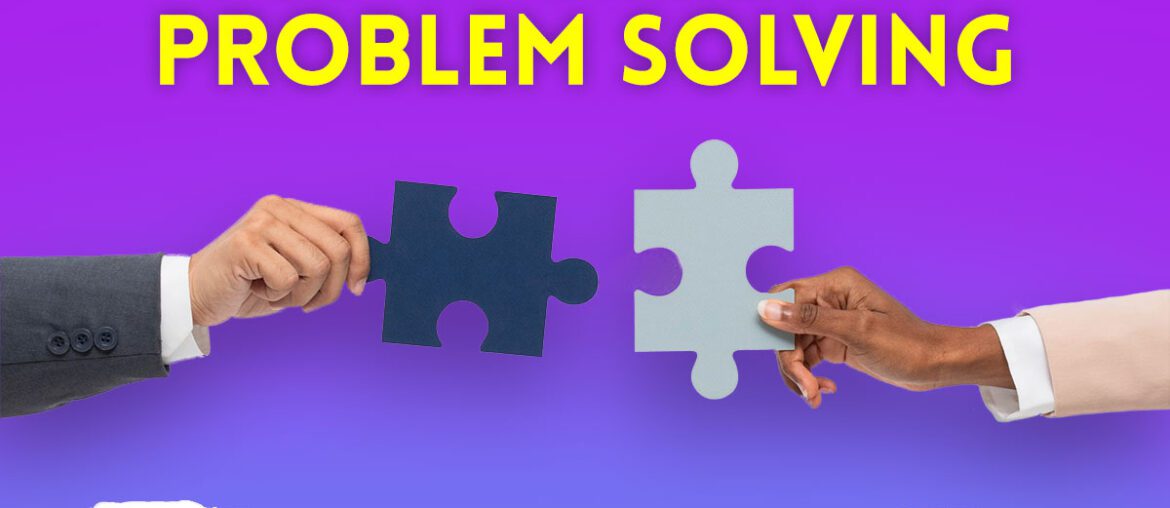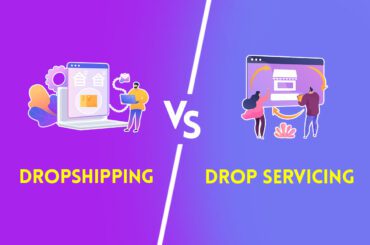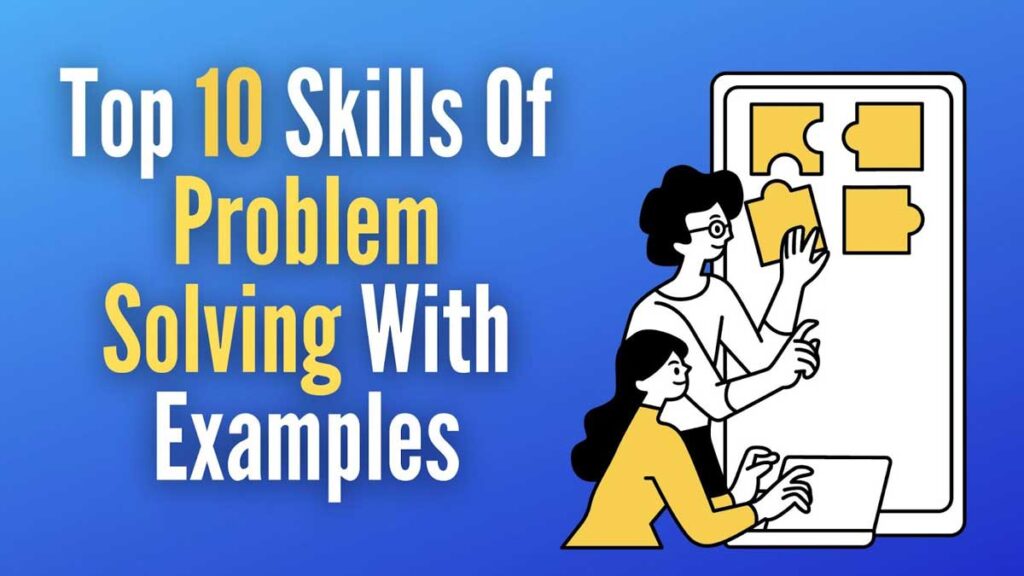
Why do companies hire workers? To help them solve problems. Companies hire people to help them identify solutions, whether a financial analyst choosing where to invest your company’s money or a marketer trying to determine where to focus their efforts. An important and marketable soft skill in the workplace is problem-solving.
Your ability to solve problems helps you do so quickly and successfully. It’s one of the top abilities that hiring managers look for in job candidates since people with these capabilities are more independent. Problem-solving skills need to be able to pinpoint the root of the issue and implement a fix right away.
Now you might ask, what are problem solving skills? That’s why we will discuss the top 10 skills of problem solving and examples of solving problems in this article so that you can learn them and improve yourself. First of all, let’s start with the basics.
What Is A Problem?
There are two ways that a problem might be defined:
Any issue that raises doubt, uncertainty, or difficulty; an issue that is brought up for solution or discussion.
According to the Encyclopedia of the Sciences of Learning: ” a problem is usually thought of as something that, because of its complexity and transparency, is difficult to deal with or control. A problem is a statement made for study or verification or a question for a possible answer.
In a nutshell, a problem is anything that must be resolved and is difficult to handle.
You probably don’t need me to remind you that every day, from small problems like getting delayed in traffic to major occurrences like receiving a chronic illness diagnosis, we deal with various problems in our life.
The following are a few examples of common workplace problems:
- A lack of interest or boredom
- Discrimination
- Disputes with the boss or other employees
- Problems with performance
- Stress and/or burnout
- Poor working circumstances
Or perhaps you are having issues in your personal life. For instance:
- A troubled relationship or divorce
- Worry about money
- Health problems
- Grief following a loved one’s passing
It’s crucial to actively develop your creative thinking and acquire problem-solving skills no matter what you’re up against.
Effective problem-solving skills will increase your level of life satisfaction. Your interpersonal skills will develop, and your problem-solving skills will make you in demand at work.
So problem solving skills definition are simple. Having the right skills to solve a problem is problem solving skills.
Why Are Problem-Solving Skills Important?
The most in-demand soft skill for 2022 is the ability to solve problems. According to a report by the National Association of Colleges and Employers called Job Outlook 2022, 86% of employers check for problem-solving skills on student resumes.
Employers will always require somebody to assist them in finding answers to their challenges. Therefore it should not be surprising that they are looking for candidates with this expertise. Any team would benefit from having a proactive problem-solver.
Eric Mochnacz, a senior HR consultant at Red Clover, says that employers are searching for workers who can make decisions independently, particularly given the prevalence of remote and hybrid work and the requirement for asynchronous communication. “Employers want to see people who can make informed judgments that reduce risk and do so without becoming paralyzed by analysis.”
Now you know what a problem is and why it is important. But what problem solving skills should someone learn? And What are solving problems skills examples? That’s what we are going to discuss next. Here are the top 10 skills for solving problems.
Top 10 List Of Problem Solving Skills With Examples
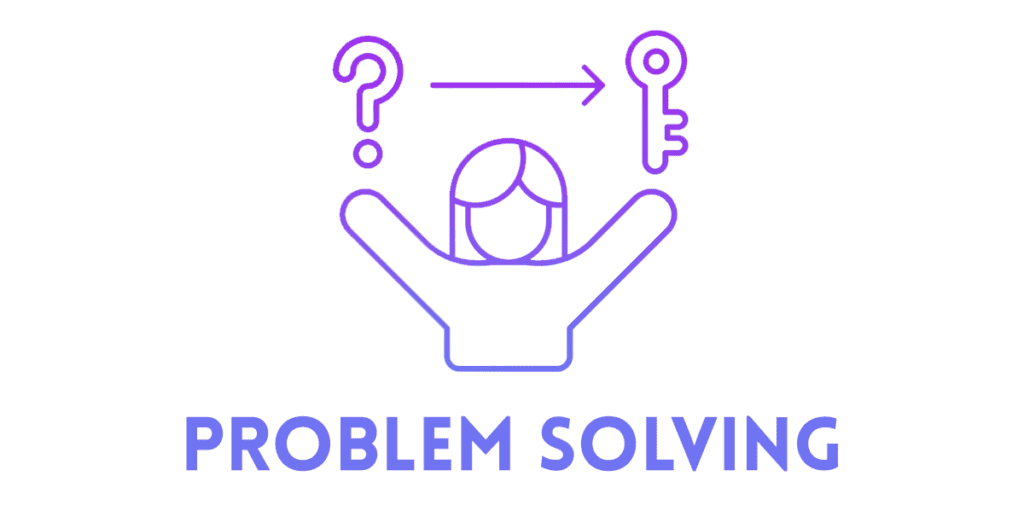
1. Researching Skills
Since research enables you to comprehend a problem’s background, it is the initial stage in problem solving. You can discover the cause of a problem by researching it.
For instance, is a new sales strategy to blame for lower revenue? Or is it because of the seasons? Is there a problem with the contacts the sales team is making?
Your awareness of all potential causes for the issue will grow as a result of your research. Once you do, it helps you focus your efforts so you can begin solving the problem.
Examples:
Let’s use company X, a producer of mobile devices, as an example. Company X is introducing a new product version. Data from reliable sources must be gathered to research features, price range, target market, competitor analysis, etc. The marketing staff can carry out several data collection tasks, like online surveys or focus groups.
For example, “What are the top 3 features anticipated for a new product” should be one of the survey’s many appropriate questions about features and cost. Or “How much do you anticipate spending on this product?” or “Which competitors provide comparable products?” etc.
2. Brainstorming
Brainstorming is a technique for collaborative problem-solving that entails the unplanned contribution of original suggestions and answers.
This method requires a thorough, unstructured debate in which each group member is encouraged to think aloud and offer as many ideas as they can, drawing on their varied backgrounds of knowledge.
Brainstorming mixes informal problem-solving techniques with lateral thinking, a technique for generating fresh ideas and approaches to problems. While some of these concepts can lead to new, creative solutions to problems, others can generate new concepts.
Examples:
Writing down the steps to get from Point A to Point B, “teleporting” yourself to a different time and place, “putting yourself in other people’s shoes” to think of how they could solve an issue, “superstorming,” or using a fictional superpower like X-ray vision to solve a problem are all common techniques for brainstorming.
3. Creative Thinking
When trying to solve a problem, research is essential. However, there are times when it’s challenging to identify the precise root of a problem. This could happen if there isn’t enough time to identify the issue’s fundamental cause or if there are conflicting viewpoints.
If an issue hasn’t been specified, you can still explore potential solutions using creative thinking in certain circumstances.
More open-ended problem-solving is encouraged by creative thinking, which is less structured than other innovative approaches. It also emphasizes the creation of fresh viewpoints and the promotion of creativity at work.
Examples:
Finding innovative solutions to challenging problems: User research may not properly describe the complexity of a situation. Creative thinking can produce solutions without this information, but other innovation processes depend on it.
Adapting to change: Business executives must adapt since the business world is always evolving. Overcoming unforeseen obstacles and finding answers to unexpected problems are made possible through creative thinking.
New ideas: Creative problem-solving can provide new ideas that propel business growth in addition to providing solutions. These concepts may result in brand-new service offerings, product lines, or a more effective organizational structure for operations.
4. Communication Skills
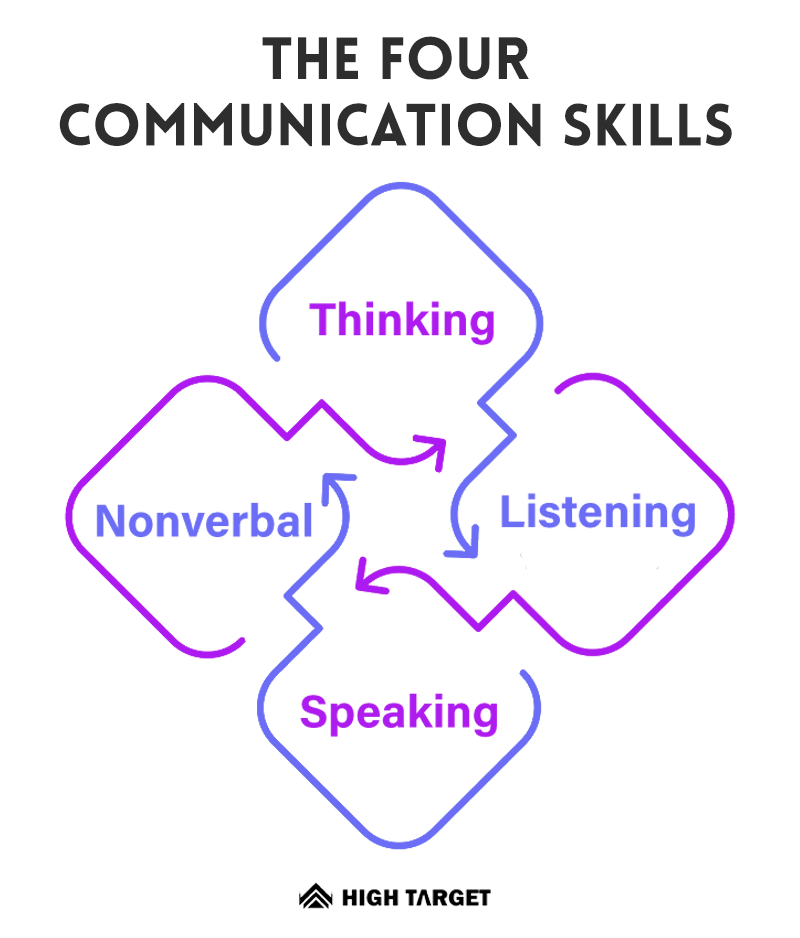
One of the most important leadership skills is communication, which is the foundation of problem solving. You must be able to express your ideas clearly, collaborate with a colleague, and provide honest feedback to a direct report. Being a skilled communicator enables you to convey your decision regarding a solution and bring everyone together to address it.
Problems cannot be quickly and effectively resolved without specific problem-solving communication skills.
Examples:
Active listening: You can concentrate on what the other person is saying by actively listening to them.
Giving constructive feedback: Giving feedback to coworkers and managers can be challenging. Therefore you must be good at it.
Presentation / Visual communication: Learning how to present information effectively can help you in various situations, including selling new products and services to customers, conducting sales calls, and even simple brainstorming.
5. Teamwork
No marketing manager stands alone. To collaborate with others and advance a company’s objective, teamwork is crucial. It is required for brainstorming sessions, task distribution, and problem-solving activities.
Even though most of your job is done independently, collaboration is still necessary to interact with coworkers from different departments and stay on track with your goals. However, in your work as a marketer, you frequently engage with several people each day—if not dozens. Therefore, you must acquire the abilities that make everyone desire you on their team.
Examples:
- Collaborating with others to accomplish team goals.
- Getting along well and forming relationships with people of many personalities.
- Establishing and sustaining positive working connections with managers and coworkers.
- Keeping lines of contact open with other people.
- Observing and mentoring other workers
- supporting training.
- Leading, influencing, inspiring, and convincing others to accomplish objectives.
- Seeking out approaches to support and help others.
- Demonstrating compassion for other people’s problems.
- Dealing with a variety of people while remaining adaptable and open-minded.
- Observing how people think and listening to them.
6. Analytical Skills
Any problem that has to be solved must first be analyzed; to uncover the fundamental cause, you must look beyond the problem’s symptoms.
Your team may often spend more on social campaigns than anticipated. Analytical abilities enable you to dig deeper into the issue to determine what might be going wrong rather than micromanaging every little element.
Your social media coordinators can build campaigns appropriately, but they lack the fundamental knowledge of budgeting needed to keep expenditures under control. You, therefore, come up with a training program to instruct them on financial forecasting, loss, and profit.
Both analytical and critical thinking skills help in the processing of information so that you may come to wise judgments.
Strong analytical skills will help in the interpretation and organization of data, giving them great type of problem-solving skills for job seekers in industries such as accounting, data analysis, and marketing analysis.
Examples:
- Addressing client concerns
- Improving product designs
- Resolving technical problems
- Creating learning and development programs that are in line with the needs of the business
- Finding new prospects for sales
- In charge of strategic projects
- Creating initiatives for internal communication that will connect staff
- Developing prototypes for new products
- Implementing programs for lifelong learning
7. Critical Thinking
The capacity for clear, unbiased thought about a problem or issue is known as critical thinking. It is the capacity to consider all aspects of a situation and come to an informed conclusion. Critical thinking enables us to comprehend the underlying causes of issues and to view them from several angles.
Being able to identify all of the potential solutions to a problem and selecting the best one makes critical thinking an essential problem-solving skill. We can make optimal choices when we can critically analyze the potential implications of our actions.
Examples:
The situations that necessitate critical thinking vary by industry. Several examples include:
- A triage nurse evaluates the cases and determines the patients’ treatment priorities.
- A plumber determines which supplies are most appropriate for a certain task.
- An attorney examines the evidence and develops a plan to win the case or determine whether to settle outside court.
- A staff training session on customer service is created by management after reviewing customer feedback forms.
8. Evaluation Skills
To assess the situation, identify the problem’s underlying causes, and develop a strategy to address them, evaluation is crucial in problem solving. Gathering data, determining the issue’s causes, and formulating viable solutions are all necessary steps in evaluating a problem.
It can be challenging to evaluate a situation if you’re anxious or overburdened. It’s crucial to step back, breathe deeply, and consider every possible angle of the issue. Try to pinpoint the problem’s primary cause once you’ve acquired all the necessary data. You can begin to think of potential solutions once you have identified the underlying reason.
Examples:
- Data analysis
- Adaptability
- Creating and evaluating surveys
- Customer feedback
- Follow-through
- Troubleshooting
- Resilience
- Integrity
- Identifying patterns
- Open-mindedness
9. Decision-Making
You must choose the solution that will produce the best results after determining the problem’s scope, source, and alternative solutions.
Even if you comprehend all the components of the problem, you won’t be able to solve it successfully if you can’t make informed decisions about the subsequent phases of the problem-solving process.
To demonstrate to potential employers that you have the skills required for the position, highlight decision-making and other conceptual talents on your resume if you’re seeking a management position, such as logical thinking and strategic planning.
Examples:
- Organizing a meeting to decide on a new feature for a product
- Selecting one applicant to extend a job offer to
- Obtaining input from the team’s members to develop a new team procedure
- Examining market trends to determine how they will affect business strategy
- Connecting with a stranger to find out how they deal with work-related issues at their company
- Collaborating with a teammate who doesn’t share your perspective to come up with a solution
- Identifying a problem with data reporting and working to fix it
10. Managing Emotions
When there are decisions to be made and problems to be solved, being unable to manage one’s emotions and recognize emotions in others seriously impairs one’s ability to perform at work.
When a person or leader is unable to detect and minimize the impact of emotions on the problem-solving and decision-making process, it always ends in misunderstandings, errors, and poor business outcomes, whether they are working alone or with supervisors, peers, or direct reports.
From a coaching viewpoint, assisting clients in better managing their emotions through their emotional intelligence has been shown to help them become better problem solvers and decision-makers (EI).
Since the start of the EI research, the results have consistently proven that all other factors being equal, those with high EI do better than those with lower EI. Studies also show that those with high EI are better at problem-solving even when significant emotions are present.
Examples:
- Taking a moment to think before making a decision.
- Considering your reaction to each potential course of action.
- Thinking about the potential outcomes and how your choice might influence others.
- Before making a choice, take a break.
FAQs
How will companies find our capacity for solving problems?
There are three ways to evaluate your problem-solving skills: by asking you for examples of occasions when you’ve previously solved a problem; by posing you with various hypothetical problems and asking you to reply to them; and by seeing how you use your problem-solving skills when completing various tests and exercises.
How do I include my problem solving abilities in my resume?
On your CV, you can list particular skills like evaluation, analysis, communication, and creativity. Many employers might take those into account.
How can I strengthen my programming problem-solving skills?
Programming problems are similar to problems in the business sector and should be solved in the same way. Apply the steps mentioned above. Never be reluctant to ask your colleagues for help.
Who needs to solve problems?
Most cooperative businesses, entrepreneurs, and governmental institutions are on the lookout for people who have the correct attitude toward problem-solving. Knowing how to solve problems well will give you a competitive advantage at work.
What professions demand problem-solving skills?
Critical thinkers may find employment as air traffic controllers, computer programmers, accountants, police officers, marketing directors, etc. However, the majority of occupations require you to have some problem-solving skills.
Also, If you’re a teenager, Check out our guide on how to choose a career path.
